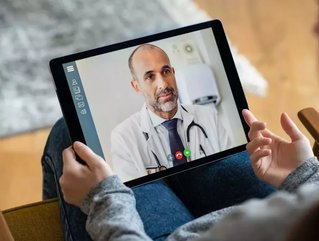Technology has become “inextricable from human experience”

A new report surveying healthcare executives found that 85 per cent believe technology has become embedded in the user’s experience.
However Accenture's latest report states that the healthcare sector must think about the long term. It recommends becoming more collaborative with digital experiences to improve the user experience.
The consultancy firm surveyed 259 healthcare executives to ask their opinions on the user experience, the role of AI and robotics, developing new technology, and innovation. 70 per cent of those surveyed said they expect consumers' relationship with technology to become even more prominent in the next three years.
Covid-19 is cited as a major factor in speeding up healthcare’s digital transformation. Businesses, governments, educational institutions and individuals now rely on AI, analytics and smart devices to do everything from disinfect roads to deliver vital goods.
The report emphasises how healthcare providers must think about digital health and their business models beyond Covid-19. Designing new models and experiences for the long term is important if they wish to remain competitive. Consumers must feel comfortable with how their data is used, and have an active role in their healthcare experience. 90 per cent of people surveyed said that to compete in a post-digital world organisations will need to “elevate their relationships with customers as partners.”
Additionally, 70 per cent of healthcare consumers have expressed concerns over personal data privacy and how their online behaviour is tracked. This highlights the need to be transparent with analytics as well as protect data.
The role of artificial intelligence continues to grow, with 69 per cent of healthcare providers either piloting or adopting AI. This growth has partly risen because of Covid-19, with AI-powered platforms helping to diagnose and treat people at home while social distancing remains a requirement.
Looking ahead, the report recommends that healthcare leaders collaborate rather than just automate. Humans and machines could understand each other better thanks to advances in natural language processing (NLP) and computer vision.
Along similar lines, the importance of robotics has increased since the viral outbreak took hold, with robots helping to dispense medication in pharmacies and checking temperatures. According to 71 per cent of people surveyed, robotics will enable the next generation of services in the physical world. The challenge lies in understanding how these robots work, which 54 per cent of health executives believing this could be an issue for employees. They must also work to remove the fear factor from both staff and consumers.
Accenture's Tech Vision report is compiled every year to highlight the emerging IT trends that will have the biggest impact around the world. It gathers the views of the Technology Vision External Advisory Board, along with experts from the technology sector, business leaders and public sector. Accenture Research also interviewed over 6,000 executives from 25 countries and 21 industries, including health providers in the US, UK and Australia.






